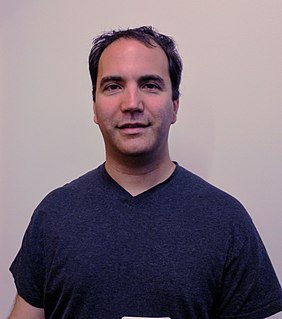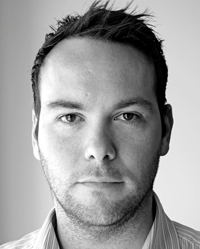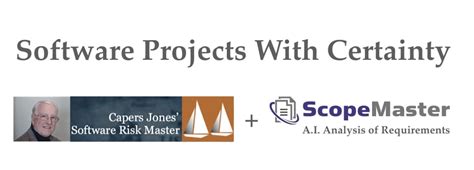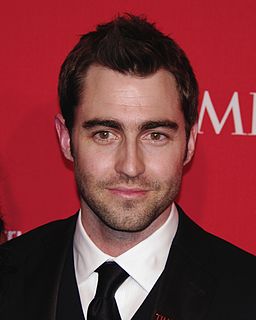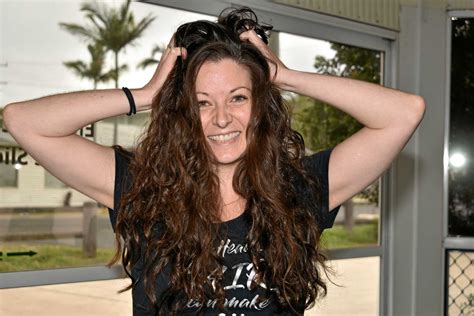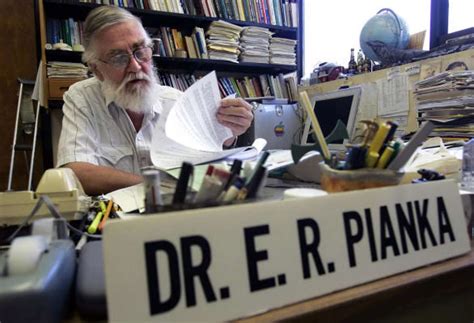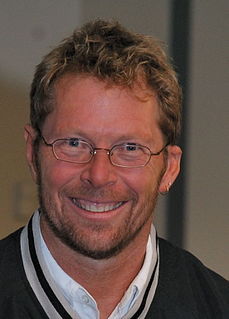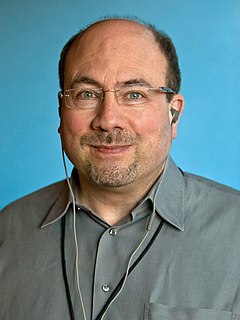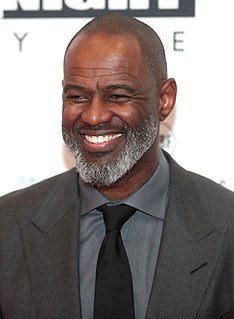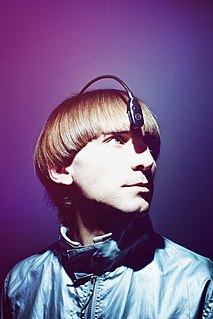Top 1200 Use Of Technology Quotes & Sayings - Page 2
Explore popular Use Of Technology quotes.
Last updated on November 22, 2024.
Digital technology can be a great resource, but it can also be a pernicious one, so it's how we, as a society, really study the cognitive impact of that and use evidence-based research to go after the technology designers to do a better job of dealing with the problems of memory and attention we are seeing.
So let's not use a stylus. We're going to use the best pointing device in the world. We're going to use a pointing device that we're all born with - born with ten of them. We're going to use our fingers. We're going to touch this with our fingers. And we have invented a new technology called multi-touch, which is phenomenal. It works like magic.
We ought to be keeping in mind that the technology is not just hardware and machinery, it is also software. So you can think of languages of the technology and writing of the technology and the social justice of the technology in what social justice does is reduce impacts on the Earth because the most impact is from the poorest and richest people.
Surveying the way viruses have been discovered in the past, I came to the conclusion that I could use my technology that I developed as a graduate student - DNA microarray technology - to create a chip that would simultaneously screen for all viruses ever discovered, and furthermore have the built-in capability of discovering new viruses.
As part of our layered approach, we have expedited the deployment of new Advanced Imaging Technology (AIT) units to help detect concealed metallic and non-metallic threats on passengers. These machines are now in use at airports nationwide, and the vast majority of travelers say they prefer this technology to alternative screening measures.
You can't just stop technological progress. Even if one country stops researching artificial intelligence, some other countries will continue to do it. The real question is what to do with the technology. You can use exactly the same technology for very different social and political purposes. So I think people shouldn't be focused on the question of how to stop technological progress because this is impossible. Instead the question should be what kind of usage to make of the new technology. And here we still have quite a lot of power to influence the direction it's taking.
I'm not a big believer in revolutions. What people call revolutions in technology were more of a shift in perception - from big machines to PC's (the technology just evolved, fairly slowly at that), and from PC's to the internet. The next "revolution" is going to be the same thing - not about the technology itself being revolutionary, but a shift in how you look at it and how you use it.
We haven't evolved as loners, we need each other. It's easy to believe in the illusion of technology bringing us closer together. But if you were to protest that and say, 'I'm not going to use a smartphone, I'm not going to use email, I'm not going to use social media,' it's like you're no longer a part of humanity.
Megaupload was a dual-use technology. You can use it for good things, and you can use it for bad things. If someone sends something illegal in an envelope through your postal service, you don't shut down the post office. If someone speeds with the car he just bought, you don't go to the car manufacturer and say, 'Hey, we're shutting you down.'
No society has ever yet been able to handle the temptations of technology to mastery, to waste, to exuberance, to exploration and exploitation... We have to learn to cherish this earth and cherish it as something that's fragile, that's only one, it's all we have... We have to use our scientific knowledge to correct the dangers that have come from science and technology.
I am extraordinarily fascinated by the future of technology. We are in the early infancy of technology, and we have an opportunity to guide how technology develops and integrates into our lives. I talk a lot about the 'invisible interface,' or the idea that we can utilize technology without being absorbed into a screen.
Introducing a technology is not a neutral act--it is profoundly revolutionary. If you present a new technology to the world you are effectively legislating a change in the way we all live. You are changing society, not some vague democratic process. The individuals who are driven to use that technology by the disparities of wealth and power it creates do not have a real choice in the matter. So the idea that we are giving people more freedom by developing technologies and then simply making them available is a dangerous illusion.


